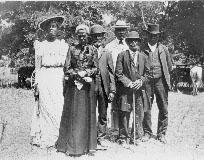
It’s the oldest known celebration commemorating the end of slavery in the United States and in fact, the Juneteenth celebration dates back to 1865. It was on June 19, that Major General Gordan Granger and his Union soldiers landed at Galveston, TX, with news that the war had ended and that those who were enslaved were free. In addition, even though the Emancipation Proclamation became official January 1, 1863, it took Texas two years to get the news.
Many rumors persist as to why the news didn’t reach Texas until 1865, ranging from the possible murder of the messenger on his way, to the possibility of a deliberate attempt to stifle the news in order for Texas plantation owners not to lose their laborers so quickly. However, for whatever reason – Texas did not receive the news until that day in 1865, which has become an important date in history ever since. First important in just Texas, it began to be recognized as a turning point throughout the remainder of the country as well.
Originally, just a Texas celebration, Juneteenth has now spread to over 200 cities in the United States. In the subsequent years after 1865, and today, some cities sponsor weeklong events that include celebrations, music, ethnic dress, skits, barbeques, picnics, and family gatherings. Commemorating the importance of African-American freedom, the celebration also emphasizes planning for the future, education, achievement, a time for assessment, and self-improvement.
Juneteenth’s growing popularity, according to www.Juneteenth.com, signifies a level of maturity and dignity in America. “In cities across the country, people of all races, nationalities, and religions are joining hands to truthfully acknowledge a period in our history that shaped, and continues to influence our society today. Sensitized to the conditions and experiences of others, only then can we make significant and lasting improvements in our society.”
Many folks still ask, “why is Juneteenth celebrated on a yearly basis?” The answer is that to this day, June 19 continues to symbolize the end of slavery, and for many African-Americans, it symbolizes what the Fourth of July means for all Americans; freedom.
